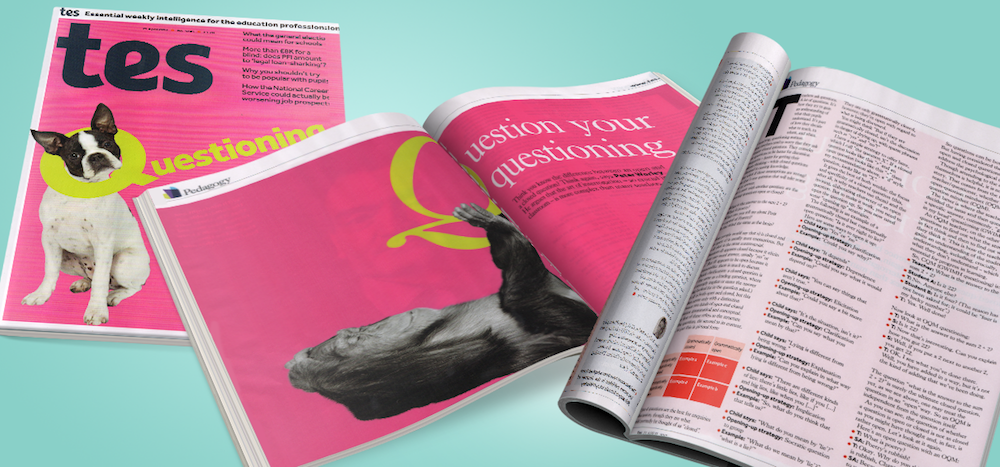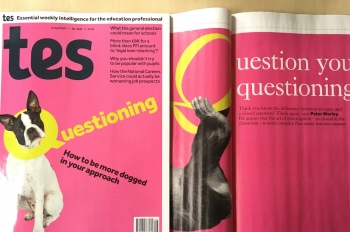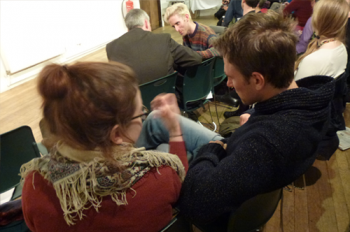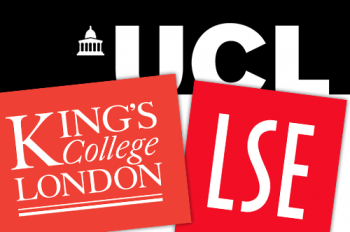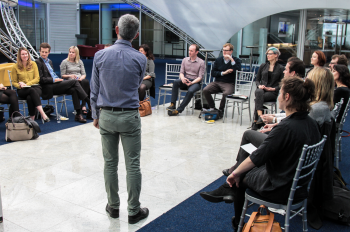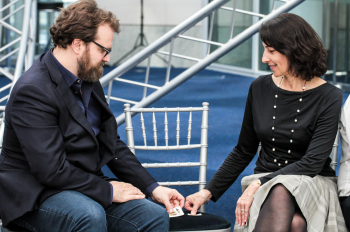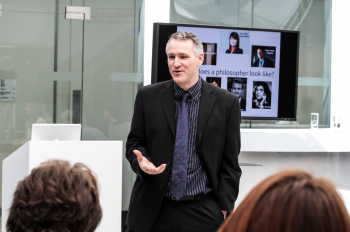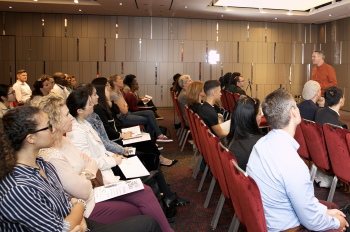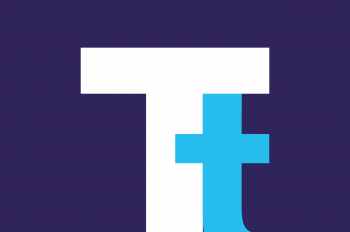I've used this technique in every lesson since the inset and will adopt it for life now! It was significantly effective from the get go. Delighted!
Alex Apaloo, Westminster School
I felt that this approach was a very valuable one with great integrity.
Rabbi M. Dollis Hill
Questioning is central to almost every aspect of teaching and so good questioning is central to good teaching. Training in Open Questioning Mindset (OQM) is training in good questioning in all subjects from maths to poetry, but not only what questions to use and when; much more importantly, it is about cultivating the right questioning attitude in order to use the right questions as effectively as possible. OQM is about how to become a ‘listening teacher’ in a high pressure environment. It will transform all aspects of your teaching and, consequently, it will transform your pupils as much as you.
INSET
To date, more than 100 Teachers and Teaching Assistants from across 12 schools have been asked to rate the quality of our OQM training: 58% gave it the top ranking - “outstanding” and 100% said it was either “good” or “outstanding”.
“…useful examples of questions to link with reasoning - links with maths mastery focus!”
Teacher, St William of York
Many of the teachers have noticed and commented in their feedback about the training, that using an OQM not only enhances the contributions coming from children during philosophical enquiry, but can equally improve student discussions in lessons across the curriculum.
It was very useful and it introduced me to strategies I can embed across the curriculum, not just philosophy sessions.
Teacher, Gipsy Hill Federation
What We Offer
Short introduction through a staff room meeting: inspire your staff and start on the journey to opening the minds of students and teachers.
Half day inset: covering theory and practice in more depth.
Full day inset: includes practical application for deeper understanding by participants so that they can feel confident using the questioning strategies presented and learned on the training day.
As recommended by the Teacher Development Trust we suggest follow up to all INSETS with modelling to teachers in their classrooms (1 full day, 8 classes). This can be done over one day where visiting philosophers will come into the classroom and run a session with your students.
Coaching: working in partnership with one teacher to become the questioning lead in the school, who can then continue to support other teachers in the future. After a full day INSET we would work one-to-one with a committed teacher on a weekly basis, modelling, team-teaching and then coaching. After one term this teacher should have embedded good questioning habits and knowledge fully into their classroom practice, know where they will need to develop and reflect on their practice, and be able to share their insights with fellow teachers.
Keynotes: a quick look at the basic idea of having an 'open questioning mindset', as part of your INSET or other training event.
Please email Kim kim@philosophy-foundation.org to talk more about what you would like to gain from training with us, to book a meeting, or to find out the costs.
Excellent key note speaker at today's INSET on questioning in the classroom - Peter Worley @the_if_man. See TES Apr 17. Highly recommended.
Tim Brewis, Cheltenham College
Free resources and articles
Open Questioning Mindset was developed through classroom practice and Peter Worley's academic papers available in open access Journal of Philosophy in Schools.
Ariadne’s Clew Absence and presence in the facilitation of philosophical conversations
Open thinking, closed questioning: two kinds of open and closed question
In Creative Teaching and Learning: The Listening Teacher with accompanying webinar
Join our website for free to have access to over 200 lesson plans ranging from EYFS to A Level and videos of Peter doing philosophy in schools.


